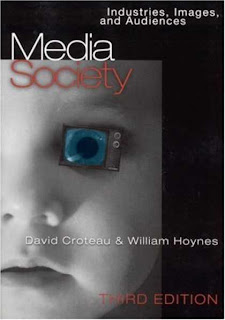This is the first blog I have ever made. I was skeptical at first, a little weary on whether I would be able to figure this whole thing out, or if I would even like it. Since I have started blogging I have learned a lot about it. This creates a forum where people can really showcase their ability to use the Shifts of our 21st Century Media Culture, the Basic Principals of Media Education, and Persuasive Techniques to Analytical Tools. Since I have had my blog I have seen personal pages, pages that promote a start up business such as MyDietPower a blog that promotes the use of science baased software to help you manage your weight. The owner, a man who walks around my neighborhood at home to lose weight blogs about his interesting encounters while losing weight. I have also seen informative and support pages like Beth Fitzgerald's African Empowerment Project Blog and more recently a friend from high school sent me to his blog to read about a cause promoting becoming a Bone Marrow Donor and why he got evolved with it and then sent me to another blog to read more.
This is a video that is promoting a cause that was distributed online through a blog.
Seun PSA from Noah Hutton on Vimeo.
#2 Creating a Personal Life in a Digital World
"Do you think I should just Facebook him/her instead?" A saying I have heard many a times when friends have found someone they are attracted to or want to get to know them better. It has become more and more apparent to me how the internet and social networking sites have changed the way we interact with each other. Calling someone on the phone has become a daunting task that we have become afraid to do with people we don't know very well. In the article Brave New World of Digital Intimacy Clive Thompson talks about the difference between normal friends and say friends you have on Facebook; are they a different type of friend? We use social networking sites such as Facebook, Twitter, YouTube and LinkedIn to post information about ourselves which is them blasted all over the internet for anyone to use. As we learned in the Movie The Persuaders there are companies such as Acxiom who gather all your information up and then sell it to a company so they can market to you.
Clip on Acxiom
#3 Media, A mind altering experience.
Creating new forms of media has turned into creating new ways of learning. In Postman's Amusing Ourselves To Death (Pg. 142) he talks about how education, the way we learn, and how television has changed that. He often references Sesame Street as a major player in making television a media for education. I have found this to be very true in many aspects. Once a new media technology comes out we adapt our minds to include it in our lives. So when the internet came we adjusted to using it because it was so much easier then reaching book and newspapers in the library. Now the computer has changed the format for which we learn. Our minds no longer want to learn without the internet we learn better using short bursts of information given to us on the internet, not looking through many pages in a book to find a certain fact. In the text Feed you can really tell how technology can change the way we learn. On page 26 and 27 in Feed you can see that they aren't even given the option to search for information it is just sent to them automatically, there is no effort whatsoever on the minds part. Now, is this good or bad, I think it can be both, but it sure does affect how we learn and gather our knowledge.
Mrs. Obama teaching kids how to grow their own vegetables on Sesame Street.
#4 Politics in Media
I have found it to be mind blowing the amount of control politics have on media. In the book Media and Society it has a portion of the 1996 Telecommunications Act. Politicians passed this act and many of them reaped the benefits from it. This act did many things such as (Media and Society pg 91):
*Giving any single entity no limit on number of stations they can own.
*Putting no limit on national radio station ownership.
*And increase the amount of local radio stations that can be owned a single entity.
In Censored 2010 they talk about declaring a truth emergency (pg 197), asking if corporate media has failed to give us important information about issues facing the nation. They control what we hear about issues such as the War in Iraq, they place experts onto stations to talk about issues like war. If they choose to not tell us something or to spin it a certain way, we have no say. Putting Media outlets under a few as possible corporations has allowed the government to more easily control the message they want sent out.
Affects of the 1996 Telecommunications Act on Radio
#5 Corporate Power
First 1/2 of this video wouldn't let me embed it, but here is the link to the video
This is the second 1/2 of the movie
In Censored 2010 (pg 251) the book talks about "The Hyperreality of a Failing Corporate Media System". It talks about how a major media corporation has the power to report "news" in a hyperreality format where you are unable to distinguish between what is real and what isn't. And in Media and Society (pg 47) they argue that some critics think corporate takeovers of media in print have geared themselves more toward entertaining and attracting consumers instead of informing citizens of important local and world issues.
#6 How to attract to different parts of the Triune Brain (Reptilian, Limbic, and Neocortex)
Before this class I didn't truly understand how appeal to different parts of the brain. The brain is the most complex living thing in the universe. The three major parts of the Brain consist of:
Reptilian - Oldest part of brain, Intelectual, regular body functions such as heartbeat
- Eating, Mating, Fighting, Running Away
Limbic - Emotional or Feeling Brian,
- Processes pictures/images & Music
Neocortex - Newest par of the brain, Thinking or Rational Brain
- Higher level of thinking, Reading and Writing
In Amusing Ourselves to Death (pg 27) Postman talks about the emergence of new major mediums and how it creates new forms of truth-telling. New mediums affect our triune brains differently whether it is text as in a book appealing to your neocortex or photography appealing to your limbic brain. Once you know what parts of the brain react to certain stimuli then it is easier to understand what types of media appeal to you.
#7 Hegemony Theory
Gramsci argued that groups in power can maintain their rule with force, consent, or by combining the two. (Media and Society pg. 165) To rule by force you must use institutions such as the police, military, or other agencies to threaten or physically coerce people so that they remain obedient. He did realize that power could be gained at the level of culture or ideology. In the U.S. we seem to be controlled more by our culture where we just take current social arrangements as is. For the Hegemony Theory to work we have to consent to our society, and we in the U.S. have learned to consent our society through, media, schools, and religion. All of those intitutions have convinced us successfully to consent to society through the use of our four tool sets (the Eight Shifts, the Seven Basic Principles of Media Education, and Persuasive Techniques). In Feed you can really see how media can implement hegemony. They repeat things, they even finish Link's sentences to further make him think the way they want him to (pg 14).
#8 Web 2.0 pros and cons
Pros
Web 2.0 allows us to easily communicate with one another. For example web 2.0 made it really easy for me to share photos that I took while studying abroad with family and friends back home. Web 2.0 applications include Twitter, Facebook, YouTube, LinkedIn and Blogger. Some social networking sites allow you to connect with people from your past or get to know current friends better. LinkedIn has become a online hub for networking in the business world. These sites have also let a non profit groups get their name out without using paid marketing. Web 2.0 has allowed many people to be more competitive in the job market like with Feed and when Violets father didn't get a job because he didn't have the feed (pg 288) .
Cons
As stated in the article Brave New World of Digital Intimacy, Thompson suggests that web 2.0 social networking sites have made it uncomfortable to talk on a cell phone for hours. The article With friends like these... suggests that web 2.0 disconnects us rather than connects us. The article also implies that sites may sell your personal information to advertisers. Has allowed employers to be able to search through your past and personal life. Making things easier and more accessible which could as Postman says turn us into not knowing what we are laughing about and why we stopped thinking about it (pg 163).
#9 Media Censoring News
In Censored 2010 the whole book talks about stories that they consider to be censored in the U.S. media outlets. They suggest that if corporate media spent more time reporting these censored stories that they deemed unimportant, they wouldn't be in such difficult situations (pg xiv). Media and Society mentions how politicians use media to affects certain messages and worldviews. We are persuaded to be censored by stories because the people reporting our news to us have become masters at using persuasive techniques and other aspects of our four tool sets to convince us in thinking the way that they want us to. For example entertainment news has become more important to many of us over world news, those media reporters are the ones who convinced us that entertainment news like knowing where Robert Pattinson had lunch was vital news.
#10 The Effect of Images as a Medium
Amusing Ourselves to Death states that photography and writing do not share the same universe of discourse. Pictures as a language is totally different. Effecting us differently. (pg 71) Like I talked about before writing appeals to the Neocortex where pictures and images appeal to the Limbic, we even use different parts of the brain to process it. Being visual appeals to us as more truth then writing. In Feed when Link goes to visit Violet before she dies her father is angry with him for not caring. Link doesn't seem to react much until he starts sending him shots of memory in image form. When he saw what happened to Violet the reality set in for him and he begged her father to stop sending the image memories (pg 289) Images being processed by the Limbic brain tend to effect us on an emotional level that no other medium can.





































